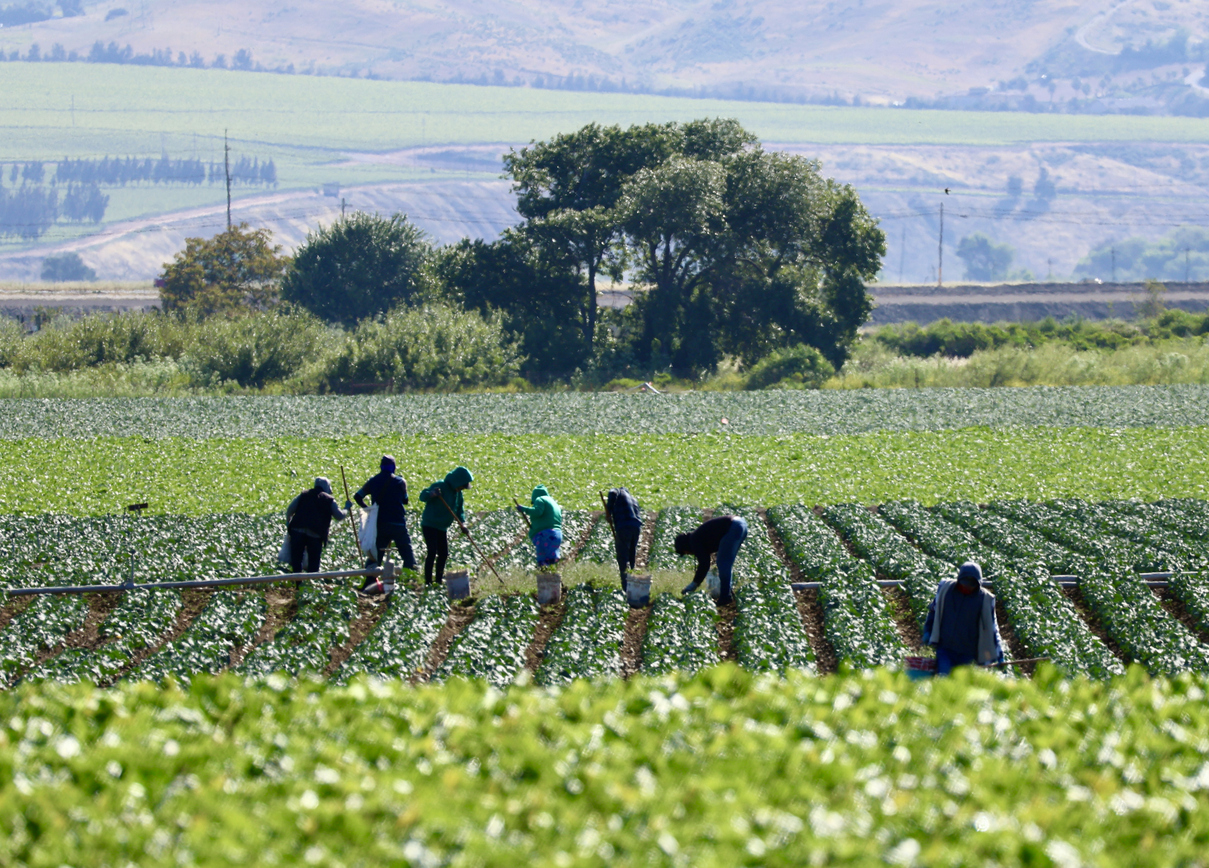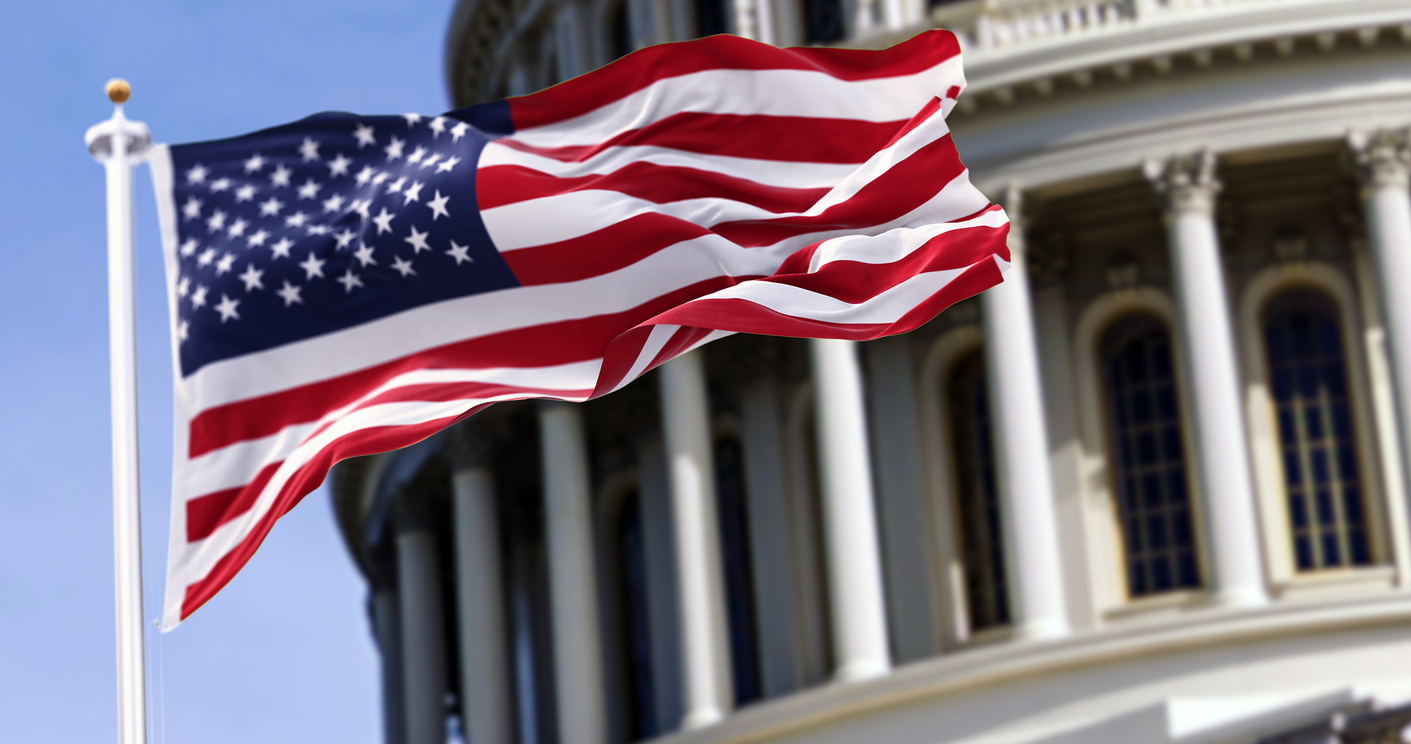The outcome of next week’s US election could have far-reaching impacts on the food industry, from Kamala Harris’ plans to crack down on price-gouging to Donald Trump’s plans for across-the-board tariffs on goods coming into the US.
However, there is still significant uncertainty about how things will play out regardless of which presidential hopeful prevails.
Some proposals, such as Harris’ plans to raise the federal minimum wage, need congressional approval, which may be optimistic in the current political climate. Others are pretty vague, such as Trump’s plans to let Robert F. Kennedy Jr (RFK) “go wild on health… wild on the food… wild on medicines.” Still others from the official Republican platform serve as statements of intent, rather than specific policy proposals: “Prevent world war three, restore peace in Europe and the Middle East…”
Project 2025, a plan spearheaded by conservative think tank the Heritage Foundation, has several food and ag proposals, although it’s unclear if they will form part of Trump’s agenda, meanwhile.
These include goals to remove the US from “any association with UN and other efforts to push sustainable-development schemes connected to food production,” slash the EPA’s budget, repeal the Dietary Guidelines, eliminate checkoff programs, eliminate USDA’s Conservation Reserve Program (CRP), amend criteria for food stamps eligibility, repeal the federal sugar program, and “eliminate subsidy dependence.”
The House Republicans’ most recent farm bill draft, however, proposed increases to commodity payments.
Food and health: RFK to take ‘control’ of HHS, USDA, FDA?
Some of the biggest uncertainties relate to the remit of government departments impacting food and ag should Trump win, with former presidential candidate Robert F. Kennedy Jr telling supporters at an event on Monday that Trump had promised to give him “control” of the Department of Health and Human Services, the Food and Drug Administration, and the US Department of Agriculture, cabinet positions that require confirmation in the Senate.
“What President Trump has promised me is control of the public health agencies, which are HHS and its sub-agencies, CDC, FDA, NIH and a few others, and then also the USDA, which is – which, you know, is key to making America healthy,” he claimed. “Because we’ve got to get off of seed oils, and we’ve got to get off of pesticide intensive agriculture.”
In a video posted on X, he added: “We’re going to ban the worst agricultural chemicals that are already prohibited in other countries. And we’re going to remove conflicts of interest from the USDA dietary panels and commissions.”
As for the FDA, its “war on public health is about to end,” he said in a separate post on X accusing the agency of suppressing “psychedelics, peptides, stem cells, raw milk, hyperbaric therapies, chelating compounds, ivermectin, hydroxychloroquine, vitamins, clean foods, sunshine, exercise, nutraceuticals and anything else that advances human health and can’t be patented by Pharma.”
He added: “If you work for the FDA and are part of this corrupt system, I have two messages for you: 1. Preserve your records, and 2. Pack your bags.”
In a speech in Lancaster County, PA, last week, he outlined plans to fire “every nutritional scientist at FDA because all of them are corrupt and all of them are complicit in the poisoning of our children.”
‘Is he going to make any of this happen? We have no evidence that he can or will’
As to how much of this to take at face value, it’s hard to say, Dr. Marion Nestle, Paulette Goddard Professor of Nutrition, Food Studies, and Public Health Emerita at New York University, told AgFunderNews, “It’s hard to know how much credibility to give anything said during a campaign.”
Kennedy, for example, appears to be advocating for aggressive controls on food, drug, and ag companies in a bid to protect public health at the same time as indicating he plans to gut the agencies that police them.
Nestle agrees with a “lot of what he [RFK] says” in an opinion column recently published in the Wall Street Journal, his “odd views on vaccination and other such matters” notwithstanding.
“I think it would be great if the National Institutes of Health focused on chronic disease prevention, medical schools focused on prevention rather than treatment, government was free of conflicted interests, we kept toxic pesticides out of our food supply, and agricultural supports went to food for people rather than feed for animals for fuel for automobiles.”
But she added: “Is he going to make any of this happen? We have no evidence that he can or will, and plenty of evidence from Trump’s presidency that public health, education, and health care will suffer.”
In this week’s episode of North American Ag Spotlight, meanwhile, Trent Loos, a sixth-generation farmer and podcaster selected to serve on Trump’s Agriculture Advisory Committee during the 2016 presidential campaign, told host Chrissy Wozniak that Kennedy was “not going to be involved with the Department of Agriculture. I’m very convinced of that,” although he did not explain why.
CBA: If Congress doesn’t act, states start taking matters into their own hands
There’s a certain amount of “political opportunism” at the tail end of any campaign with Kennedy’s vision for food and health not exactly squaring with Trump’s own proclivities, said Tom Madrecki, VP campaigns and special projects at the Consumer Brands Association. “But we are concerned about an increased willingness to indulge in anti-science points of view.
“Especially if you have agencies that are in charge of regulating the safety and efficacy of our nation’s food supply that are then not being held to the same evidence based standards, or are disregarding long standing science to pursue a political agenda.”
The problem with a polarized and sclerotic Congress that may not implement either of the candidates’ key plans, regardless of who wins, meanwhile, is that you then see “states interjecting themselves and saying FDA or whoever isn’t doing its job, so we’re going to do it,” said Madrecki.
“So they do their own thing.” And if you’re a food manufacturer, retailer, or ingredients company trying to conduct business nationwide, he argued, that’s highly problematic.

Tariffs and trade
But perhaps the most significant proposal for the food industry from either candidate is Trump’s plan to impose 10-20% tariffs on everything coming into the US and 60% tariffs on goods from China.
The tariffs, which are paid by US companies that import goods from overseas, could benefit some US-based companies using exclusively US-sourced ingredients, packaging, and equipment.
But they will also significantly raise costs for companies sourcing anything from overseas, claimed Madrecki, costs which will be passed on to US consumers. CPG giants including Coca-Cola and Campbell Soup repeatedly raised this concern during Trump’s last term in office.
“Trade is vital to our industry; many of the products our members make would be impossible to make without connectivity to the global supply chain, whether it’s for spices or coffee or taurine and caffeine,” he added.
“What we’ve seen in Washington on a bipartisan basis is a real rejection of rules-based trade, a shift away from globalism and multinationalism to intense protectionism, to view trade as this thing to be pushed back against.”
And this is very much counter to the needs of the food, beverage, household, and personal care product industries, he argued. “Because, again, although we are the largest domestic manufacturing sector by employment, when you cut off borders and limit trade, you inherently hurt domestic manufacturers that protectionism would be hypothetically supporting. It just makes it more expensive to do business.”
From a fresh produce perspective, meanwhile, he said, it’s often less a question of whether things can be grown in the US, but when, with firms sourcing certain fruits from overseas on a seasonal basis in order to give US consumers year-round supplies of blueberries, for example. And imposing tariffs will not shift this dynamic.
‘US companies want to feel like the USTR has their back’
The other thing the CBA has also “consistently called for [from both campaigns] is for the USTR [Office of the United States Trade Representative] to apply some of that same energy they have about tariffs towards engaging and defending US interests abroad on things like safety or phytosanitary issues,” said Madrecki.
“So if a country passes a law that is basically discriminatory against us, US companies want to feel like the USTR has their back by leveling the playing field and making sure that US interests are reflected in final agreements when we negotiate with our trading partners.”
“What we’ve seen in Washington on a bipartisan basis is a real rejection of rules-based trade, a shift away from globalism and multinationalism to intense protectionism.” Tom Madrecki, Consumer Brands Association
NRF: ‘Blanket tariffs ‘don’t make sense’
Trade associations representing retailers have also expressed concerns about tariffs. Speaking at a media briefing at the Port of Los Angeles earlier this month, Matt Shay, president and CEO of the National Retail Federation argued that “tariffs as a temporary tool on a strategic basis make sense.” However, “blanket tariffs on goods that have no production capability in the United States that serve no strategic purpose, that drive up costs for consumers, those don’t make sense,” he claimed.
His points were echoed by the Harris campaign, which argues that tariffs on staples such as coffee, bananas, and seafood, would “simply raise costs and reduce access to everyday food items” rather than driving domestic production, given that it’s unlikely America will become a major coffee or tropical fruit producer any time soon.
Harris has not said much about her own plans for tariffs, meanwhile, although a spokesperson for her campaign recently told the New York Times she would “employ targeted and strategic tariffs to support American workers, strengthen our economy, and hold our adversaries accountable.”
According to Madrecki, however, “One of the frustrations with the current administration, which has continued the Trump tariffs on China, is that they are not taking more a scalpel approach. The list of goods [from China subject to tariffs] under Section 301, for example, is vast.”
“Both the Trump and Biden administrations intended for the levies to address China’s trade practices with the hope of returning factory jobs to the United States; instead, the tariffs have forced American small business owners to choose between raising their prices or relying on already slim profit margins to absorb the increased cost of inventory.” Ashton Wiggins, specialist, legislative affairs, National Retail Federation
IDFA: New tariffs ‘could have serious implications for US-Mexico trade’
Economists, who warn that a general tariff could breach trade agreements with trading partners, also point out that Americans have borne almost the entire cost of tariffs on Chinese products instituted in Trump’s first term, which prompted retaliatory tariffs on US agricultural goods.
Trump—who continues to argue that foreign exporters pay tariffs, rather than US importers—then used US taxpayer dollars to create a fund to support US soybean farmers and others hit by the move.
The prospect of tit-for-tat tariffs is deeply concerning for US dairy producers, said the International Dairy Foods Association (IDFA) in a recent blog post. New tariffs could have “serious implications for US-Mexico trade,” added IDFA. “For example, tariffs imposed by the US on Mexico may result in Mexico matching baseline tariffs on imports from the United States, which has the potential to negatively affect approximately $2.3 billion of US dairy exports [based on 2023 data].”
Taxes
When it comes to taxation, Harris has pledged to increase the corporate tax rate from 21% to 28%, while Trump wants to lower it to 15% for companies that make goods in the US in a bid to boost domestic manufacturing.
Harris has also pledged to expand the start-up expense tax deduction [whereby the IRS allows new businesses to deduct certain startup expenses to reduce taxable income] from $5,000 to $50,000 and has set a target of 25 million new business applications in her first term.
The Tax Foundation estimates Trump’s proposals will add $3tn to the 10-year budget deficit, while Harris’s policies would increase deficits by $2.3tn.
While no business is going to object to a lower corporate tax rate, said Madrecki at the CBA, you can’t view any of the these proposals in isolation, “as the tariffs are basically taxes on US businesses and consumers, so you have to look at whether one will offset the other.”

Immigration: ‘legal, efficient access for workers in food and farm jobs’
Moving onto immigration, IDFA did not reference Trump’s plans for mass deportation of undocumented immigrants—many of whom work in food and agriculture. However, it remains “steadfast in our commitment to supporting immigration policies and reforms that provide US dairy with access to a healthy and robust workforce,” said the association.
“That is why we remain engaged in congressional negotiations of the Farm Workforce Modernization Act and leading the development of a bipartisan, commonsense border security and immigration reform package.”
It added: “IDFA will also continue to champion the importance of visa programs for dairy, including adding dairy processors to H-2A [work visas that allow foreign nationals to enter the US to perform seasonal or temporary agricultural work].”
Meanwhile, proposals that seek to restrict immigrant or guest worker labor due to legal factors “must be balanced with policies that provide legal, efficient access for workers in food and farm jobs,” said IDFA. “For example, the US dairy industry has used the H-1B program to fill specific scientific, veterinary, and engineering jobs that are critical.”
Price gouging
When it comes to food prices, the Harris campaign makes general commitments to “invest in building resilient food supply chains” by supporting smaller food and ag businesses; “revitalize competition” by cracking down on “unfair mergers and acquisitions that give big food corporations the power to jack up food and grocery prices;” and “focus on investigating and prosecuting price-fixing up and down food supply chains.”
However, the policy that has garnered the most attention is her plan to tackle “price gouging” at a federal level. This would empower the Federal Trade Commission and state attorneys general to penalize companies selling goods or services “at an excessive price” during emergencies or times of crisis, something that is already unlawful in several states.
The proposal—blasted by Trump as “Soviet-style price controls”—gained traction following an admission by a Kroger exec that “retail inflation has been significantly higher than cost inflation” for eggs and milk, although it may have limited impact if it only applies during emergencies such as pandemics or natural disasters and will require bipartisan support to get anywhere in Congress.
What each campaign says
The list below contains key plans from both candidates that will impact the food industry based on their campaign’s official platforms or public statements. It is not comprehensive.
- Tariffs of 10-20% on all imported goods, 60% for Chinese goods.
- Mass deportations of undocumented immigrants.
- Deregulation.
- Cut corporate tax rate from 21% to 15%, eliminate taxes on tips.
- Invite Robert Kennedy Junior to ‘go wild’ on health, food, and medicines.
- End the crackdown on cryptocurrencies, repeal AI controls brought in under the Biden administration, and “create a robust manufacturing industry in Near Earth Orbit.“
- Project 2025, a plan spearheaded by conservative think tank the Heritage Foundation, has several food & ag proposals although it’s unclear if they will form part of Trump’s agenda.
- The Harris/Walz campaign proposes to continue many Biden administration initiatives including expanding the child tax credit and earned income tax credit.
- Raise the federal minimum wage.
- Increase corporate tax rate from 21% to 28%, eliminate taxes on tips, quadruple tax rate on corporate stock buybacks.
- “Protect fair trade and create predictability and stability.”
- Push for a federal ban on price gouging on essential goods during emergencies or times of crisis.
- “Crack down on unfair mergers and acquisitions that give big food corporations the power to jack up food and grocery prices” and “investigate and prosecute price-fixing up and down food supply chains.”
- “Focus on expanding production among new suppliers and small farms, growers, and processors.”
- Push for “expanding the startup expense deduction from $5,000 to $50,000” and make it “easier for small businesses to file taxes.”
- Fund a network of business incubators and innovation hubs and launch a small business expansion fund offering low- or zero-interest loans.
- Direct a third of federal contract dollars to small businesses by the end of the first term.





